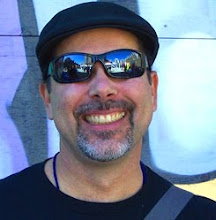 There's an interesting profile of LA writer Raymond Chandler in the LA Weekly. I guess it's been 50 years since he died.
There's an interesting profile of LA writer Raymond Chandler in the LA Weekly. I guess it's been 50 years since he died.It’s hard to appreciate just how radical The Big Sleep seemed when it came out in 1939, how it disturbed critics with its portrayal of a world peopled by “moral defectives” (as one reviewer said), how it was a “study in depravity” (according to another), a story populated by pornographers and homosexual blackmailers, mobsters, corrupt cops and rich girls who posed nude in exchange for drugs, bad-seed daughters who killed for vengeful sport and gangsters who controlled politicians. The novel depicted a rapacious midcentury America, where getting and spending, hawking and hustling, corruption and greed and all the rotten little secrets beneath the brash, rude surface of the city signified the death of the Victorian-beau ideal. It’s important to remember that Chandler was as much an English-Victorian writer as a California-American one.
Among the things he liked about L.A. were cars. He loved to drive, loved the freedom encapsulated in the very word automobile. His big green Packard convertible was perfect for migrating to Big Bear for the summers and Palm Springs for the winter. Maybe it was why he moved more than three-dozen times in and around L.A. With an automobile, Chandler could. He embraced the new world of transience and mobility the way a duck takes to migrating, as if it were part of his genes. He liked screenwriters better than novelists: He felt they were more fun and less pretentious. Hollywood eventually beat him down, but he also had some good times when he worked there in the ’40s.
Chandler didn’t create a feel-good world in his books. He gave you permission to feel unhappy about the society you found yourself in. He witnessed the advent of television and mass advertising: Television had possibilities, he felt, though it bred such passivity that watching it was like being mired in the primeval ooze, while advertising was an elaborate scam, a waste of human intelligence, a conning of the public, an inherently dishonest activity guaranteed to make him hate any product being hawked. He didn’t much like the new post–World War II consumer culture either, or the fact that the all-tile bathroom had become the new standard of civilization. He particularly hated the idea of built-in obsolescence — a phrase, regrettably, that’s hardly even uttered anymore.
Toward the end of his life Chandler said, “The story of our time isn’t the story of war or the atomic bomb. It’s the story of an idealist married to a gangster and how their children and home life turn out.” He could be describing The Sopranos.



Thanks for posting this profile of Chadler. As a former (reformed?) Los Angeleno, I enjoyed it thoroughly.
ReplyDelete